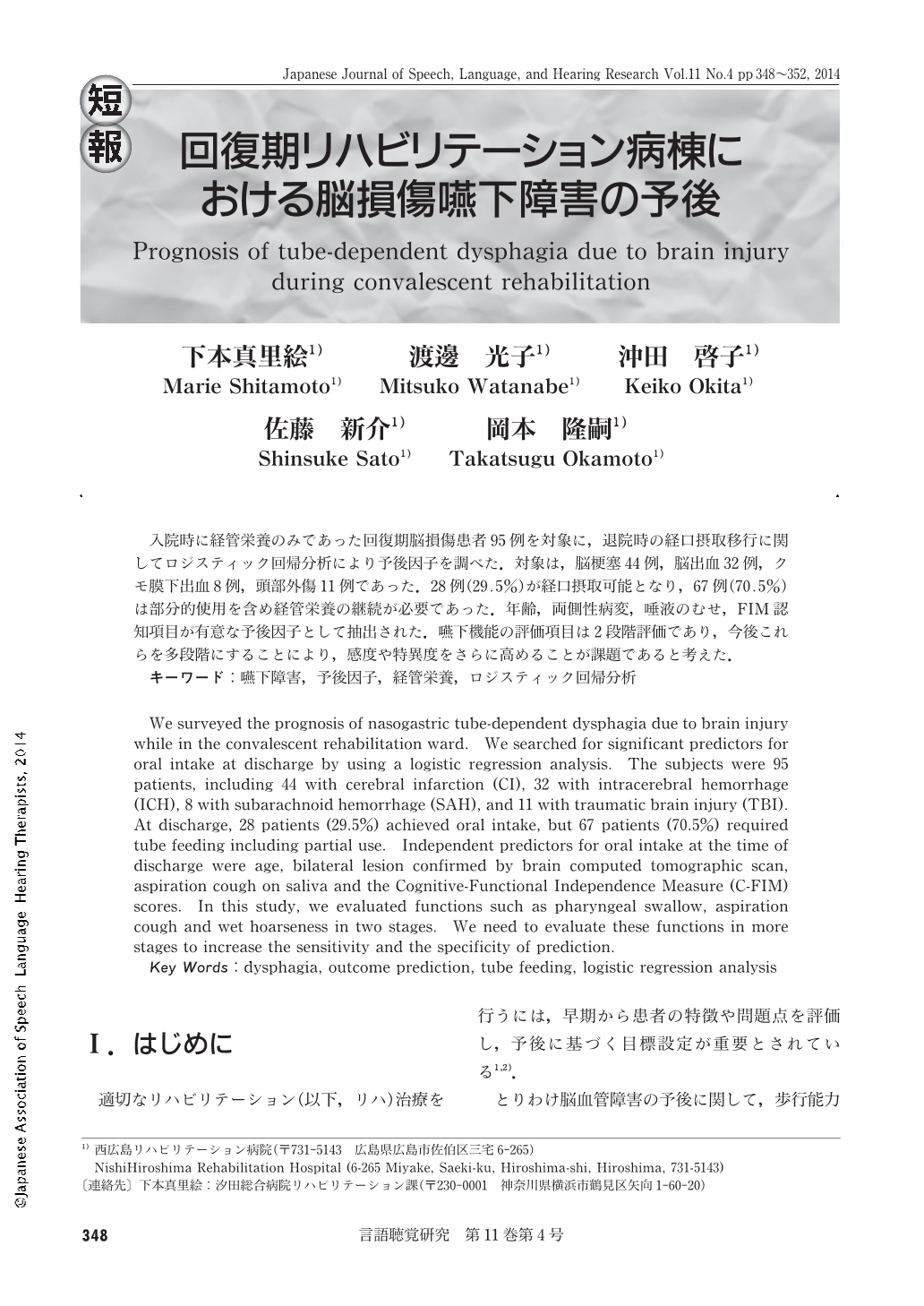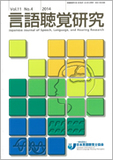Japanese
English
- 有料閲覧
- Abstract 文献概要
- 1ページ目 Look Inside
- 参考文献 Reference
入院時に経管栄養のみであった回復期脳損傷患者95例を対象に,退院時の経口摂取移行に関してロジスティック回帰分析により予後因子を調べた.対象は,脳梗塞44例,脳出血32例,クモ膜下出血8例,頭部外傷11例であった.28例(29.5%)が経口摂取可能となり,67例(70.5%)は部分的使用を含め経管栄養の継続が必要であった.年齢,両側性病変,唾液のむせ,FIM認知項目が有意な予後因子として抽出された.嚥下機能の評価項目は2段階評価であり,今後これらを多段階にすることにより,感度や特異度をさらに高めることが課題であると考えた.
We surveyed the prognosis of nasogastric tube-dependent dysphagia due to brain injury while in the convalescent rehabilitation ward. We searched for significant predictors for oral intake at discharge by using a logistic regression analysis. The subjects were 95 patients, including 44 with cerebral infarction (CI), 32 with intracerebral hemorrhage (ICH), 8 with subarachnoid hemorrhage (SAH), and 11 with traumatic brain injury (TBI). At discharge, 28 patients (29.5%) achieved oral intake, but 67 patients (70.5%) required tube feeding including partial use. Independent predictors for oral intake at the time of discharge were age, bilateral lesion confirmed by brain computed tomographic scan, aspiration cough on saliva and the Cognitive-Functional Independence Measure (C-FIM) scores. In this study, we evaluated functions such as pharyngeal swallow, aspiration cough and wet hoarseness in two stages. We need to evaluate these functions in more stages to increase the sensitivity and the specificity of prediction.

Copyright © 2014, Japanese Association of Speech-Language-Hearing Therapists. All rights reserved.


